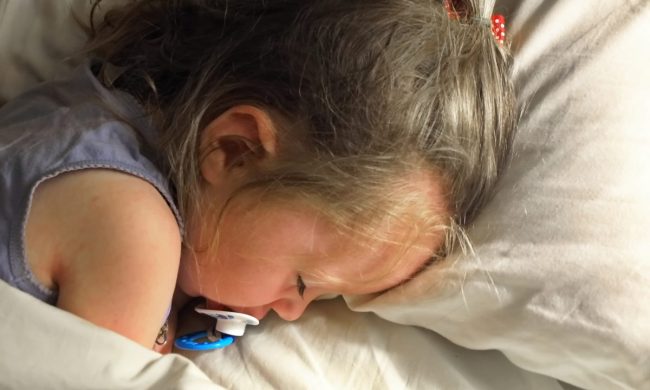Social media has its perks. You can keep in touch with family and friends, share photos of memorable milestones, and banter about current events. However, in the life of a teen, social media carries many risks — from being “ghosted” or “unfriended” to cyberbullying. Nonetheless, social media has become an integral part of growing up, but how can you tell if this commonly used tool of interaction has become too much of a habit or worse, one that has become toxic?
To help you navigate through the issue of whether your teen needs a social media detox, we’re sharing information about how to help your son or daughter through a period without social media and how to bring about some balance between the online world and reality.
How do I know if my teenager needs to detox on social media?
Although social media addiction or social media dependency is not formally recognized as a mental health condition, more parents, teachers, and other adults who interact with teenagers recognize that excessive screen time is becoming more of a problem.
So, what signs and behaviors should you watch for when determining whether to impose a social media detox? According to an article reviewed by Timothy J. Legg, Ph.D., PsyD, here are a few that indicate a possible problem:
- neglecting relationships outside of the online environment
- ignoring daily responsibilities
- insomnia
- negative impact on school performance
- frequently lying about social media use
You might also notice that your teen goes through “withdrawal symptoms” when having to unplug. Plus, he exhibits symptoms of social anxiety disorder where in-person interactions become more of a challenge than before the frequent use of social media. Aside from the psychological effects, you might take notice of the impact on physical health, like a lack of exercise, which might eventually bring about a whole other set of health issues.
How do I do a full social media detox?
If you notice some or all these signs, then you might need to have a heart-to-heart with your teen about completing a social media detox and the reasons why a lack of in-person interaction is not healthy in the long term. The following are some steps to help your teen return to the “real world” and away from the online environment.
Go “cold-turkey” for a week
This might prove to be the longest week of your life, but if you and your teen can persevere, the process could go more smoothly than otherwise. For a week, your teen will be prohibited from using any form of social media. She may text or talk with friends on the phone, but anything Facebook, TikTok, Snapchat, and so forth is off-limits for a full seven days. Here’s another hint: this is the time to increase family engagement and activities with friends.
Try the gradual approach
If you’re not prepared to handle a week, or you feel that the “cold turkey” approach would be too much of an intervention too soon, then you can gradually wean your youngster off of social media. With this approach, your teen might be less likely to rebel. However, you should start with 48 hours while still encouraging outside activities and more study time.
Delete apps or temporarily disable the account
Whether you’re a week into the social media detox or just a few days, your teen might start visualizing a life without social media — be it positive or negative. To help your teen avoid temptation, you might try one of two methods. The first involves simply deleting the apps from your child’s phone while keeping her accounts active. The other method, which is to temporarily delete or disable, might seem a bit more extreme, but it would guarantee that your child is not accessing the account from another location. Again, a week is an ideal time span, and you might consider making plans to fill your teen’s time during the detox.
Find replacements for the habit
As your teen undergoes the detox, you can explore possible replacements for social media. If your teen had a favorite hobby or sport that he enjoyed before the dependency on social media, then you might offer encouragement to take up that pastime again. Another idea is to encourage him to reconnect with friends and to plan outings or host a game or movie night at your home. Also, if your teen is interested in making a difference, then volunteer work would make an excellent replacement.

Does a social media detox work?
In a study conducted by Alan R. Teo, MD, MS, and his team, the value of human contact, especially face to face, was underscored by the results. The more often the subjects made contact with friends and family, the less likely they would be to suffer from depression or anxiety. Aside from having more in-person (or phone) contact, if your teen also participates in activities that take place outdoors or at least incorporate more exercise into the daily routine, then the benefits multiply because he is staying away from social media and engaging in the world around him. The social media detox paves the way toward preventing mental health conditions due to the increased release of endorphins triggered by “real” stimuli as opposed to a screen. So, your teen is looking at an improved mood, more energy, and better sleep quality.
How long does it take to detox from social media?
No magic number exists for an effective social media detox. Every teen is different. For some, a week might be enough time for the person to realize how fulfilling life is when you’re truly present. For others, it might take months. Whatever period you choose, you’ll need to provide support every step of the way. Perhaps you or a friend can be an accountability partner for your teen where both individuals take a social media break. And as mentioned, you’ll need to help with replacement activities in the beginning.
On the other hand, if you notice your teen is still not thriving after a social media detox or her mood or overall health takes a negative turn, then it’s time to contact a mental health professional for help. It’s important to remember that the goal is to strike a healthy balance of pastimes and responsibilities while improving your teen’s well-being.



